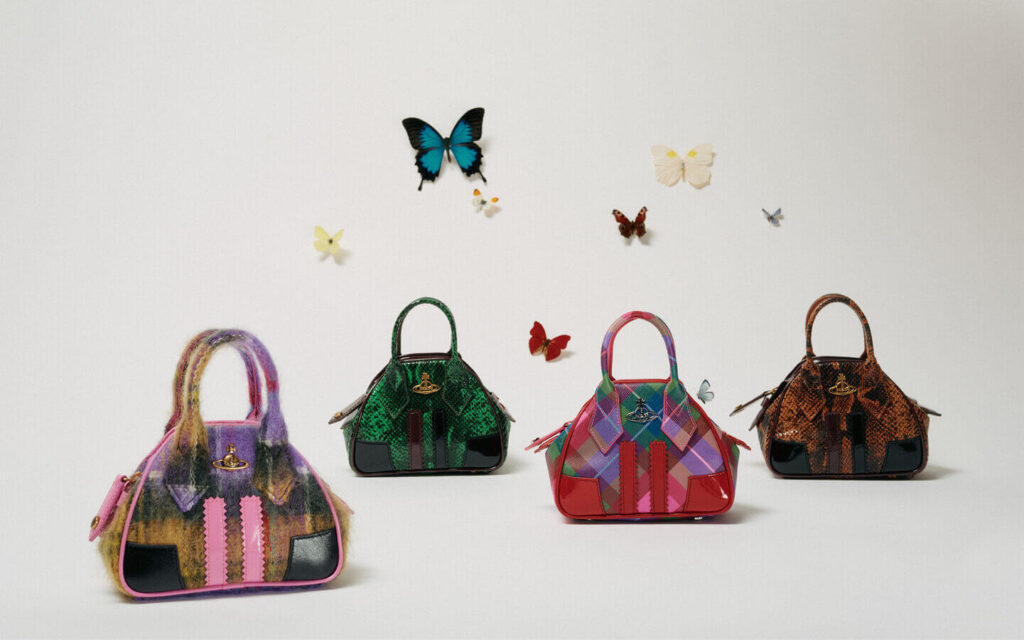
Harry Slatkin, who’s been called the king of home fragrance, has long ruled over his domain. He created his first company, Slatkin & Co., with his brother Howard and wife Laura, in 1991, selling it to Limited Brands in 2005 for what was then an estimated $15 million. He not only stayed with the brand, he took over the entire home fragrance category at Bath and Body Works, where sales during his tenure increased from $100 million to $1 billion when he stepped down in 2012. From there, Slatkin moved on to fashion, acquiring Belstaff with his best friend Tommy Hilfiger.
But his passion for scented candles continued to burn bright, and when Doug Howe, then at QVC, suggested he get back into the category over lunch at Cipriani, Slatkin seized the opportunity. In 2017 he launched Homeworx on QVC, and when Howe left for Kohl’s, Slatkin created Scentworx for that retailer. Today, Ulta Beauty, Amazon, Home Depot and e-commerce round out the distribution picture.
More from WWD
Slatkin’s reentry into the category was perfectly timed: The home fragrance category was soaring even before COVID-19 forced consumers to shelter in place, and industry sources report Homeworx and Scentworx combined had retail sales of about $100 million last year. Here, Slatkin talks about being in at the beginning of a category — and inventing its future.
You’re credited with virtually creating the home fragrance category. How have you seen it evolve?
The whole industry has changed so much over the last 30 years. When we started, we were lucky because we quickly had a cult following with what we called the “ladies.” When Rosemarie Bravo became the president of Saks, a mutual friend in San Francisco, Denise Hale, said to her, you must see the Slatkin candles and launch them, and she did. She gave us a big shop right off the escalator. That changed everything.
I love books about people who make a difference in the world, and reading about Estée Lauder and Helena Rubinstein and Charles Revson, I realized that we had to be off of the home floor. Rosemarie launched us on the couture floor and soon after moved us to the ground floor. That changed home fragrance dramatically and it became that “instant purchase” idea.
You reentered the category in 2017 with Homeworx. Where did you see white space in the market?
I didn’t. I was retired. But one day Laura and I went to lunch at Cipriani with Doug Howe from QVC. We built the largest home fragrance business at QVC with Bath and Body Works, and when I stepped down, they didn’t have anyone to do it. At lunch, Doug said we’d like for you to be back. And now I’m back to being the largest home fragrance brand at QVC.
When Doug left QVC to go to Kohl’s, he asked if I’d be interested in going there. We decided to go after home fragrance and bath and body — we launched a complete brand called Scentworx. I went from retirement to sweat on the brow.
Did you ever have any regrets about selling Slatkin & Co.?
No! It was a wonderful experience. What interested me was the consumer potential. We would be in Oprah’s favorite things issue a lot, and I realized Oprah never talked down to the consumer. When Bath and Body Works approached me, I saw how they were talking down to the consumer and were working with inexperienced perfumers. Their candles were an awful burning product. I wanted to do in the masstige world what we did in luxury, so I changed the burn, the scent, brought in master perfumers. We treated it like a fine fragrance.
I never go by price. I do it through my passion and love. There isn’t a candle I’ve ever done because someone said, “you need to fill this gap.” Even to bring a donut recipe alive for a candle — that’s based on hot apple cider donuts that I’ve been getting in East Hampton since my kids were born, to make that come to fruition in your home and not smell synthetic, but to smell like Ina Garten’s kitchen, that is what I love about it.
What’s your favorite scent?
I love all my children. People don’t realize, but it takes about nine months from start to finish for each candle. I sit down with the team, we look for spaces we want to grow and we talk to the perfume houses. They send us the initial scents, then we tweak them, then I have the initial burn and then it has to go to the candle company to pour it and burn it, then it has to get wicked, because it’s not the same wick in every candle, then it goes to the actual vessel, then it has to burn in that vessel, then I go to production and if I don’t like something I will pull it. When you spend nine months, it is a child you’re birthing. How could you not love it?
What’s the secret to starting a successful brand? What are the primary tenets of brand building for you?
You have to know that you’re not starting it just for the monetary side. When I used to go speak at colleges — I would see all of these young faces and all they care about is how they’re going to make money. I saw that a lot on Wall Street, too. But when you do something in this arena — you have to love what you do. It’s going to take a long time to make money. It’s not going to be easy and there are a lot of failures, but if you love what you do — you don’t mind.
Sweaty palms, the nervousness and excitement, is what drives me. No one I’ve ever met has ever done it for the idea of the end result. They have all done it for the passion. I’ve been able to do it over and over, so now I’m less nervous. I say to those faces — do it for the love and passion. Kids come to me and say they are going to work on Wall Street, yet their passion is food and cooking. I say, “Why are going to Wall Street?”
As someone who loves to shop, what role do you envision brick-and-mortar playing in the future? What stores do you think will be relevant and why?
I don’t think brick-and-mortar is going to disappear completely, because there are still people who like to go into stores. This has forced stores to rethink how they talk to the consumer. When the economy is booming, anything works, and you do more of the same. What was lackluster was the sameness in so many places. This idea of buying online or picking up curbside, or buying on Amazon and going to local stores to return, that is thinking out of the box. Those creative moments are going to change the map of brick-and-mortar going forward.
What will luxury look like a
fter the pandemic?
The luxury segment is going to come back. The challenge is the amount that is offered is going to have to be much particular. Now you’re more at home. How do you talk to that? Every friend of mine at every economic level is more particular about what they buy. I think we’re going to be more selective.
How do you like to structure your companies?
At Slatkin, when we were young, we would just add people as we grew in areas. If we grew retail stores, it became an area. When we sold, I was able to keep a small group, but once it started to grow we had to fold ourselves into the Bath and Body Works world, which is enormous. I lose interest when I sit in a meeting and no one is able to land the plane. When you have a lot of people, you need a decision maker or else you’re in the same meeting three times.
Now, I’m trying to keep it small and hands-on and let the people who come in grow the brand and have ownership. In the beginning, I was neurotic, and there wasn’t an area I wasn’t involved in. Now, I empower people and allow them to run with it. Less is more. This small group is able to accomplish great dreams because I’m not micromanaging them.
That is what has allowed us to grow so fast in such a short time.
Also, I say no more than I say yes. I have to see a reason for us to do something. For example, when we added Home Depot — 40 percent of its consumers are women. I thought, here they have that customer walking in and it’s all about things for your home. It’s all about a reason to be and the why of the next. I have never gone out there looking for business. When I see a white space, we roll up our sleeves and figure out how to make it happen.
What’s your management style like?
It has evolved over age. I’m neurotic about everything, whether a pillow I’m having made or a candle in each room, but I have calmed down. Once a week we all talk — the entire company gets on a call, we talk about every account and what’s going on, and in between that time, everyone does what they have to do. That allows me to have more leisure time and dreaming of ideas. The more free time I have, the more I can think of what can be possible next.
What question do you love to ask when you’re hiring?
What do you like to read the most? What is your favorite movie? Why would you like to come work with me? Why home fragrance? It’s not just a job — none of this is. Yes, we have to work to make money, but there has to be more to it than that. I like to get to know people and see their passion.
What was your first job? What did you learn that still resonates today?
I started my first company when I was 15. My brother was 17, and he came home from college and ruined my mother’s Porthault napkins in the wash. My mother said you have to replace them. As a college student, he couldn’t afford to, but my family was in textiles, so he and I got some fabric and cut out some napkins with scalloped edges and had them sewn up. She and her friends loved them and we sold them. The business grew and we got a cutter, and the next thing you know — we were doing trade shows.
We decided we should be in department stores. We didn’t know there was such a thing as buyers, so we called the CEO of Bloomingdale’s, out of the blue, Marvin Traub and he picked up the phone. We had the audacity to say we are going to revolutionize Bloomingdale’s with our scalloped napkins. And they bought them!
J.C. Penney approached us and gave us an opening order of $35,000. They warned us if it hit, to be prepared. We started getting $250,000 in reorders every month. This is when computers were just becoming in vogue. Back then we used fax paper. They asked if we had a computer and we said yes even though we didn’t.
We quickly got behind in orders and one day J.C. Penney called to check on an order and they had their antenna up. They said, if you had just told us the truth — we love the product and we would have worked it out. The lesson we learned was to always be honest. Just tell the truth. Luckily, I learned it early on.
No matter what it is, everyone is out there to help you. If you just say, I can’t do it or I don’t know how to do it, people will help you. Never lie.
For More Executive Insights:
Master Class: Tracee Ellis Ross’ CEO Lessons From Pattern Beauty’s First Year
Master Class: Délphine Viguier-Hovasse
Master Class: Stéphane de la Faverie
Sign up for WWD’s Newsletter. For the latest news, follow us on Twitter, Facebook, and Instagram.





More Stories
A Return to Designing as a Destination
Rituals Private Collection Comfort Review Cotton Blossom
Flutter Your Lashes – A LITTLE OBSESSED